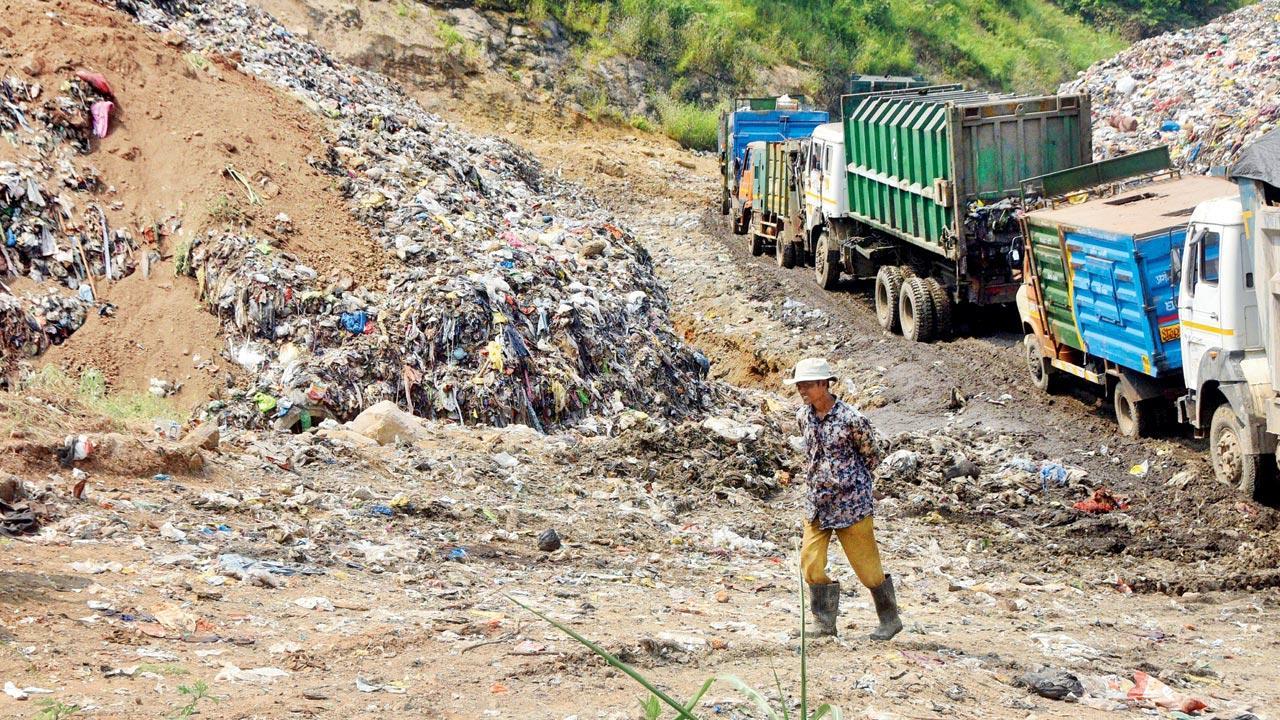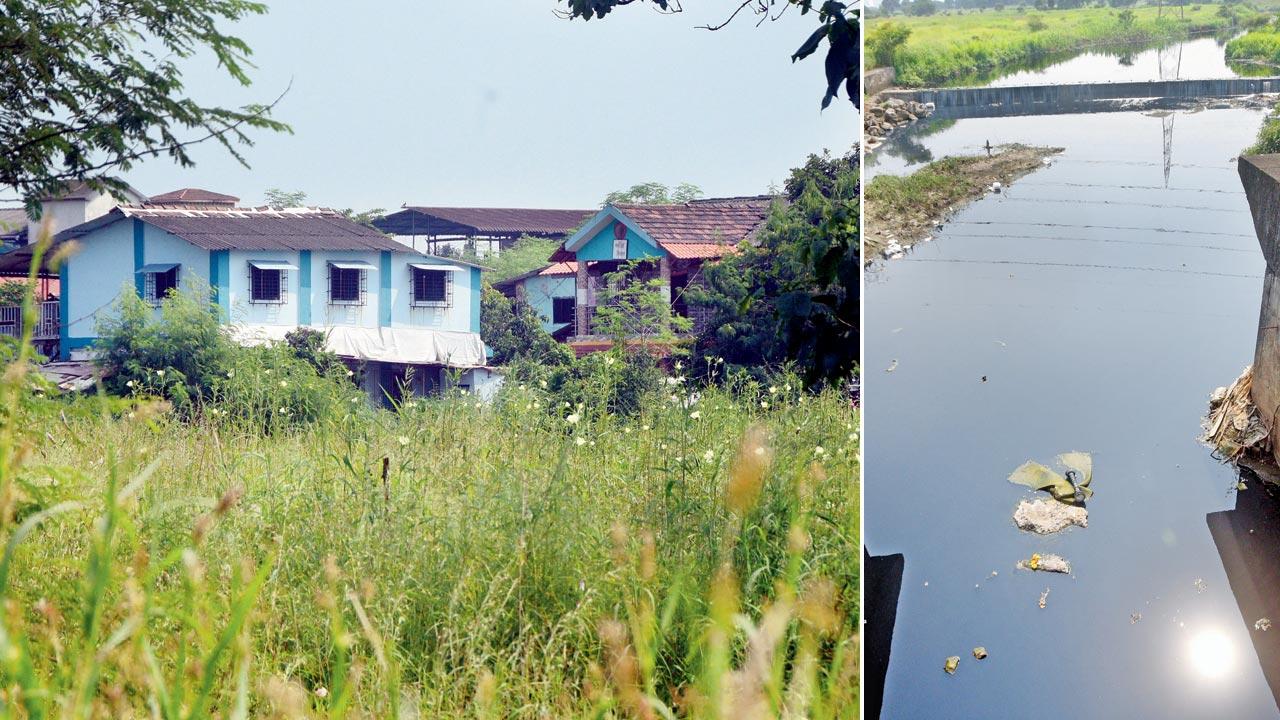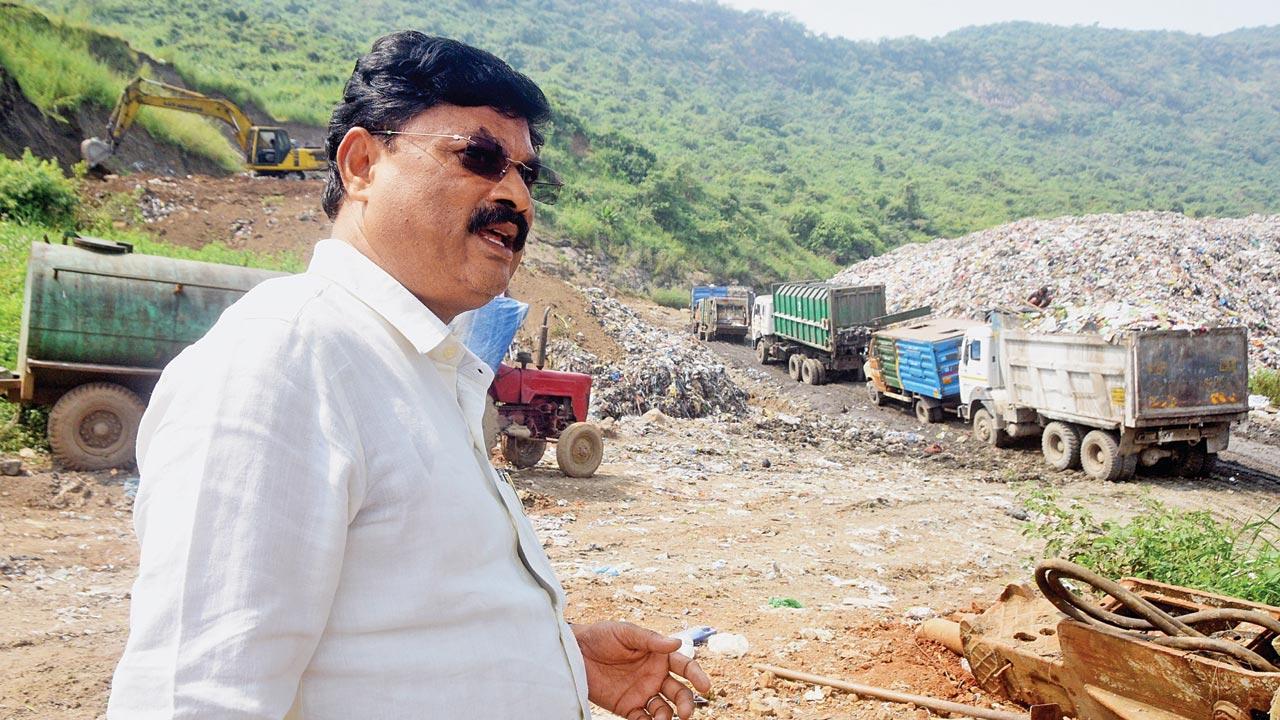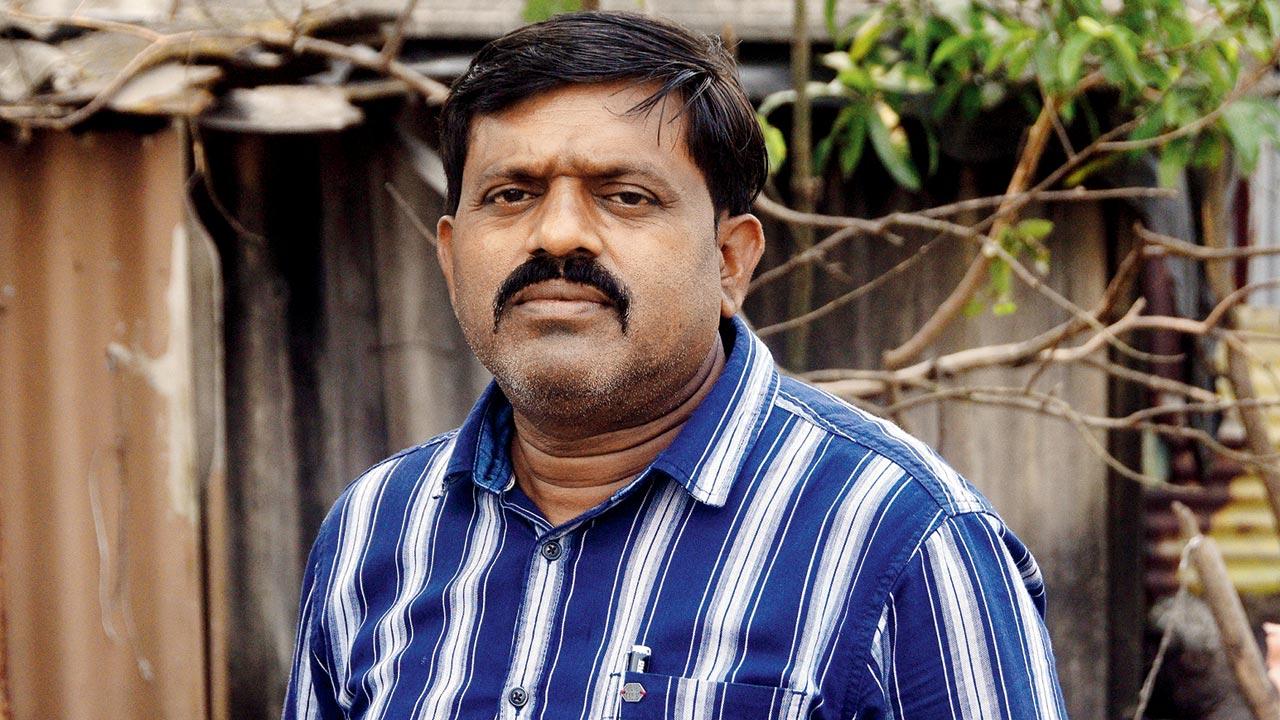As residents of a fourteen-village cluster in Thane district fight against a temporary dumping ground, mid-day finds anger fuelled by years of neglect

The setting up of a temporary dumping ground by the Thane Municipal Corporation, located on a hill in the Chauda Gaav area, led to dirty water flowing down into the villagers’ homes this monsoon. Pics/Satej Shinde
We smell it long before we see it. The dumping ground in Chauda Gaav, Maharashtra, a cluster of 14 villages, is sprawled over several acres of a hill just off the cacophonous Shil Phata junction, Thane. On our approach, we pass several trucks on their way back after dumping their cargo, and the two men accompanying us throw murderous glares at each of them.
“It was supposed to be for just a year,” says Laxman Patil, president of the Chauda Gaav Sarvapakshiya Vikas Samiti, a committee comprising residents of the villages from across political parties. Patil himself is an office bearer with the local BJP office. “In February, the Thane Municipal Corporation announced that it would be dumping its waste on a patch of land on the hill. We immediately opposed it but were told that it was a temporary arrangement for a year. The first truck, however, didn’t arrive till April.”
 The sleepy villages of Chauda Gaav have retained their charm, but most of the youth have moved out for jobs now and farming is no longer the main livelihood here; (right) The open drain, which was once a favourite spot for the village children to swim in, is now polluted by dirty water, thanks to the dumping ground
The sleepy villages of Chauda Gaav have retained their charm, but most of the youth have moved out for jobs now and farming is no longer the main livelihood here; (right) The open drain, which was once a favourite spot for the village children to swim in, is now polluted by dirty water, thanks to the dumping ground
Every night, trucks from all over Thane started coming in, spreading stench all around. The villagers had initially decided to be patient, but two months later, their patience ran out. With the first spell of heavy rain, litres of black, dirty water flowed down the hill, across the road separating it from the villages, and straight into their homes. “The houses were inhabitable,” Patil says. “For days, we were scooping the water out and cleaning up, only to see it happen all over again the next time it rained heavily.”
After four months of living in these conditions, the villagers had had enough. On October 1, they held a protest outside Bhandarli, one of the 14 villages in the cluster, and declared that the next truck that came in to dump waste at the ground would be burned down.
 Narivli resident Laxman Patil has been spearheading the effort to bring the villages under the purview of the Navi Mumbai Municipal Corporation
Narivli resident Laxman Patil has been spearheading the effort to bring the villages under the purview of the Navi Mumbai Municipal Corporation
Fortunately, their voices reached the right ears this time. On October 2, they had a meeting with Chief Minister Eknath Shinde, who gave them a written assurance that the dumping would be stopped by October 25, and that the entire operation would be moved to Diaghar, where a larger and better equipped ground is being readied.
“The municipal commissioner has issued instructions to ensure that the Diaghar dumping ground is operational as soon as possible, and all efforts are being taken in this direction,” Additional Commissioner Sandeep Malvi, TMC says.
 Sunil Mhaskar
Sunil Mhaskar
When mid-day visited the dumping ground, JCB demolition vehicles were pouring sand on the waste, in order to suppress the stench that was sure to rise in the October heat.
The real issue, stakeholders like Patil feel, runs deeper than just the TMC deciding to dump its waste at their doorstep one fine day. The 14 villages—Bhandarli, Narivli, Bale, Dahisar, Dahisar Mori, Mokashipada, Uttarshiv, Goteghar, Waklan, Bamanliv, Nighu, Nevali, Pimpri and Nagav—are still under gram panchayat administration, while the areas around them are governed by municipal corporations.
“That part is under the TMC,” says Sunil Mhaskar, standing at the dumping ground and pointing to his right. “On the left is the Kalyan Dombivli Municipal Corporation. The Panvel Municipal Corporation’s jurisdiction begins behind us, after the last village of Chauda Gaav, and Navi Mumbai’s lies further ahead. It’s just us, stuck here under gram panchayats.”
The Samiti’s point is simple. The world is changing and better governance is required. Patil’s father has served as sarpanch of Narivli in the past, as has his wife. But now, with issues like the dumping ground and unauthorised godowns springing up from the main road all the way to the hill, there need to be stronger rules and
better enforcement.
To voice their demand, the samiti and the villagers aligned with it have boycotted the five Gram Panchayats that collectively govern the 14 villages.
“There used to be acres of rice fields here,” says Mhaskar, as we drive down the narrow lanes of Narivli. It is like stepping into another world. The houses are modern yet quaint, there is almost no noise and the stray whiff of cow dung assails us as we pass by shops, schools and offices.
Today, the younger generation is better educated, and almost all of the youth work in jobs in Mumbai or Thane. Many of them stay close to work. There are fewer fields now, but Chauda Gaav has managed to hold on to its greenery.
We come to a stop on a small bridge. Patil looks over the concrete railing at a drain where rainwater and water from the fields collects. The water is pitch black, with large bits of garbage floating in it. The smell of rot wafts up as the wind blows. “I’ve seen kids swimming in this water earlier,” he says. “Now, you can’t even stand here.”
Later, in his office, Patil shows us the background image of his computer screen.
“This,” he says, “was the dumping yard.”
All we see is a spot of lush green, a stark change from the hill we just visited.
 Subscribe today by clicking the link and stay updated with the latest news!" Click here!
Subscribe today by clicking the link and stay updated with the latest news!" Click here!








